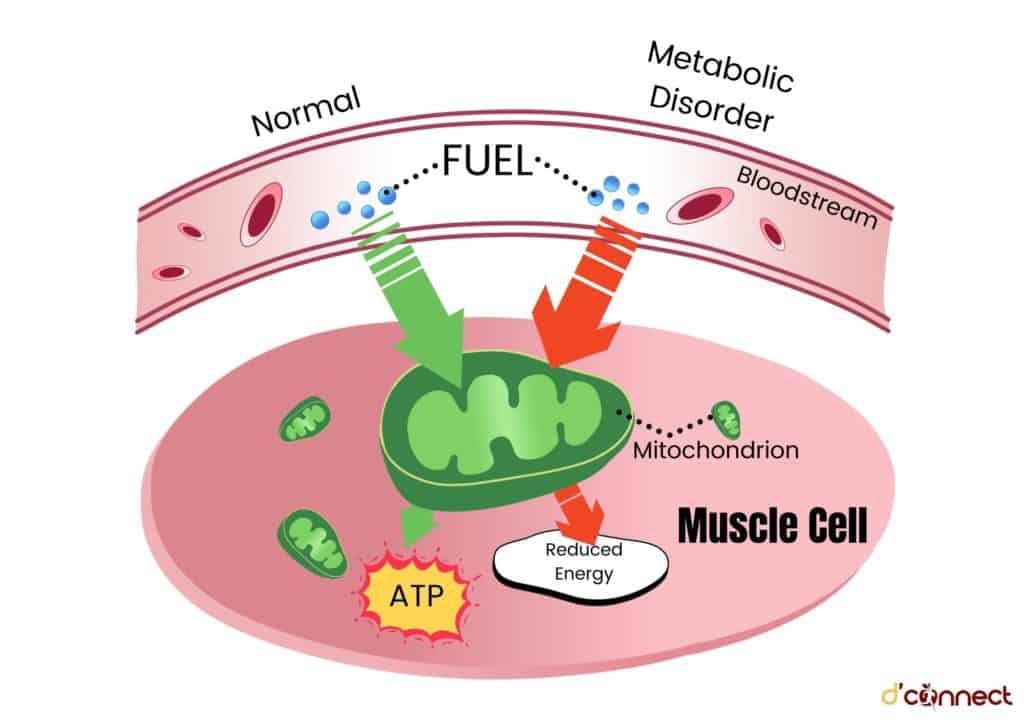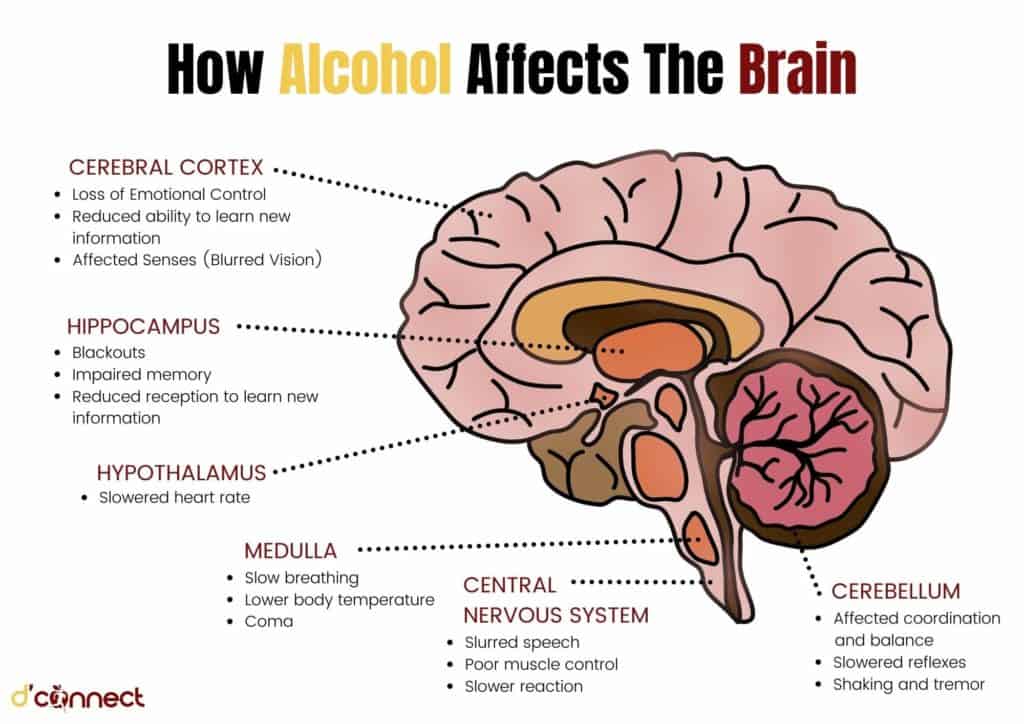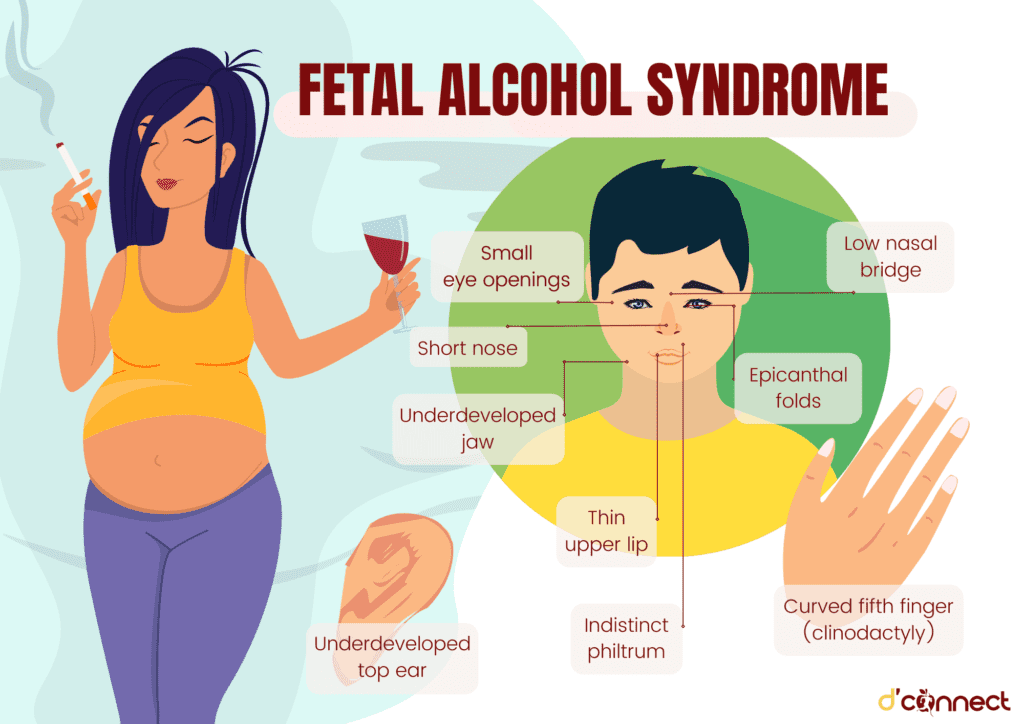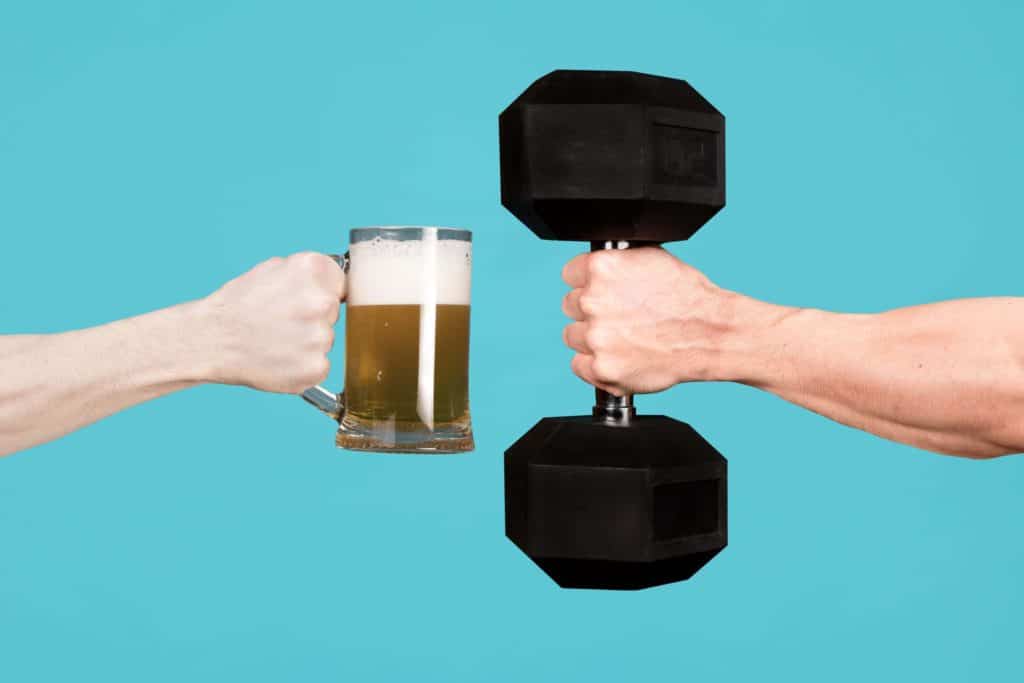
Carly Hanna
BSc (Human Nutrition and Psychology)
Alcohol is the most consumed drug in society and is especially associated with social and sporting culture in New Zealand.
Depending on the volume and alcohol content of the drink, alcohol has a negative effect on motor skills, physical performance and recovery. Also, it has a harmful effect on our brain, causing memory lapses, decreased brain activity and possibility of a stroke.
Could chronic or even acute alcohol consumption affect our athletic performance and recovery? Also, is it safe to drink alcohol before, during, or after physical activity? How does this affect our physiology and performance?
What does alcohol do to our body
While alcohol is thought to be a stimulant as it can give us confidence and enhance our social experiences, it is actually a depressant of the nervous system.[1]
After ingestion, alcohol gets processed in the body by the liver first, which is also known as first-pass metabolism.[2] The body naturally has enzymes to break down alcohol, and their efficiency can vary between person to person, which is why some people may have a higher or lower alcohol tolerance.
Chronic alcohol consumption can lead to cirrhosis of the liver, as the liver is the main organ that processes alcohol in the body.
RELATED — Read more about liver damage: What are 5 types of Hepatitis
Alcohol cannot be used by the body as a direct energy source for physical activity, like carbohydrate, protein and fat can.
If we haven’t eaten prior to alcohol consumption, or have taken antibiotics or anti-inflammatory drugs, alcohol is likely to reach higher concentrations in the blood.[3]
Drinking alcohol can result in all the typical symptoms of being intoxicated such as impaired motor performance and slurred speech. This is because of the various effects blood alcohol concentrations have on the brain and body.
Let’s go more into this and understand the differing effects of acute and chronic alcohol consumption on the body and brain? Also, how does this relate to physical performance?
Effects of Alcohol on Physical performance
In terms of physical performance, alcohol can have an effect on our nervous system, muscle energy stores, and the cardiovascular system.[1] While alcohol can affect our cognitive (brain) function, it can also influence our physical performance, as outlined below.
Dehydration
The sweat loss during exercise causes our body not only to lose fluids, but also release essential electrolytes, such as sodium, potassium, and chloride. Alcohol dehydrates our body due to its diuretic effect on the renal system and can exacerbate the body’s natural process.[4]
RELATED — Potassium (for blood pressure, heart rhythm and pH balance)
Typical symptoms of dehydration include dry mouth, feeling dizzy and/or irregular heartbeat; all of these will all have an effect on our physical performance. Due to this, alcohol is not beneficial as a choice of drink to rehydrate our body – water is always best.
RELATED — Water Vs Sports Drinks
Affects thermoregulation
Have you ever heard of the term “alcohol blanket”? No need to dress warmly if you’ve got alcohol in your system? Alcohol affects our thermoregulation (regulation of body temperature), particularly adapting to decreases in temperature in cold environments.[5]
The body perspires when it overheats and needs to reduce its temperature. As alcohol is also a diuretic, the body’s ability to regulate its own temperature is compromised, and equally dehydrates us. So while we’re likely to feel warmer when drinking alcohol, our body is unable to regulate its own temperature.
Increased muscle fatigue
When we exercise and run low on oxygen, our body can convert glucose into energy which creates lactic acid. Drinking alcohol can lead to a build-up of lactic acid in the muscles as the liver is focusing on clearing the alcohol from our body and not the lactic acid.
Alcohol in our blood can also make it easier to break down muscle instead of build muscle. This can lead to increased muscle pain, fatigue, and cramps.[1]
Drinking alcohol can therefore leave us feeling more fatigue and sore after exercising – whether that be strength or endurance-based exercise.

Increased risk of injury
When we drink alcohol, this causes our blood vessels to expand in order to increase blood flow. One drink of alcohol a week has shown to increase risk of injury compared to those that don’t drink.[1]
Alcohol decreases healing and recovery
This can be related to the decreased immune response and because healing will be slowed down from this increased blood flow to working muscles.[5] Alcohol use prior to exercise will affect our body’s ability to repair itself.
Affects psychomotor skills
Psychomotor skills and executive functions (such as attention) are affected by acute alcohol consumption, which can include reaction time, impaired balance and coordination.[2]
Evidence shows that there is a dose-response relationship between alcohol and reaction time, meaning that for every increase in alcohol consumption there is an associated decrease in reaction time.[6]
Affects aerobic performance
Alcohol affects our aerobic performance – think activities that require endurance such as running. Alcohol puts a strain on the liver as it tries to detoxify the alcohol from our system.[1,5]
As a result of this, alcohol will lower muscle glycogen levels, so there are less carbohydrates to use as a primary energy source.[4] This will cause disrupted utilisation of energy and our blood sugar levels to be low.
Having alcohol the night before you exercise
Due to alcohol’s hangover effect, evidence has shown that any quantity of alcohol the night before we exercise has a negative effect on aerobic and anaerobic performance.[4]
Typical hangover effects of alcohol include headache, nausea, and fatigue, but also the above effects on athletic performance. Whether you are a competitive athlete, or partake in recreational sport/physical activity, it is advised that you do not drink the night before you exercise in order to get maximum performance benefits.
Having alcohol on the day you exercise
Having alcohol before we exercise adversely affects athletic performance, therefore is discouraged, especially in aquatic activity.[4]
Alcohol can affect our body and brain through multiple systems such as metabolism, cardiovascular and cortical functions. Therefore, it is also advised not to drink alcohol prior to exercise, whether that be a few hours or immediately before.
Impacts of alcohol on physical recovery
As previously mentioned, alcohol can have an impact on our body’s ability to repair itself.[5] Acute alcohol consumption reduces muscle protein synthesis and prolonged alcohol use has shown to produce high levels of inflammation in the body.[7]
Alcohol can increase our risk of injury and muscle fatigue
While it is common in sporting culture to have a drink after the game, acute alcohol consumption post exercise is unlikely to impact recovery.
Chronic alcohol consumption, however, can affect our physical recovery through multiple ways, including the immune system and especially through long term damage to the brain.
What does alcohol do to our brain
Alcohol’s (ethanol) mechanisms of action are mainly through the neurotransmitters GABA (otherwise known as gamma-Aminobutyric acid) and glutamate which together can disrupt the central nervous system – brain and spinal cord.
Have you ever wondered what makes us stumble when we’ve had a few drinks?
GABA is the main inhibitor in the nervous system and alcohol increases levels of GABA in the body. The cerebellum is the part of the brain responsible for movement and balance and alcohol causes a loss of function in the cerebellum due to increasing levels of GABA.[6] This will diminish fine motor skills and balance.[8]

Glutamate is the most abundant excitatory neurotransmitter in our nervous system. Alcohol blocks glutamate transporters which leads to an inhibition of neural activity in the brain.
In the long term, this can result in toxicity of the brain. Glutamate is also associated with the rewarding effects of alcohol so is highly affected by chronic alcohol consumption and alcoholism.[9]
RELATED — read more about “rewarding effects” in our previous article Diet and the Brain: Our brain on sugar
Alcohol increases GABA levels and reduces glutamate levels in the body.[10]
Effects of Alcohol on the brain
There are several ways in which alcohol consumption can affect not only our body, but also our brain. Harmful effects of alcohol are listed below.
Brain atrophy and decrease in cortical brain activity
The cerebral cortex is the outer layers of the brain and is associated with higher-order processing such as consciousness, thought, and language. Alcohol can lead to a decrease in cortical brain activity.[8,9]
Alcohol can also lead to brain atrophy, which is the loss of brain cells and brain volume. This can be associated with the loss of function such as the effects on performance, as discussed previously.
Loss of volume of the frontal lobe is common in alcoholics
Brain atrophy and loss of cortical brain activity is the most common indicator of brain damage and can be affected by alcohol use.
Poor memory - blackouts and memory lapses
Does not remembering the night before while drinking sound familiar? Blackouts are periods of time where someone can’t recall short term events, and are common among binge drinkers.[11]
RELATED — Neurofeedback therapy and brain training
This is because the blood alcohol levels are too high and the liver can’t process the amount of alcohol consumed within a given time . Areas of the brain associated with memory include the hippocampus, prefrontal cortex and the amygdala.
Long term effects of frequent and heavy alcohol use can result in more permanent memory loss, such as dementia.[6]
Drinking alcohol can result in short and long term memory problems
Emotional Regulation
The amygdala is the primary area of the brain responsible for emotions and the hypothalamus also plays a part in regulating these emotions.[6]
While one positive effect of alcohol can ease our social anxiety or fears, alcohol can also impair our ability to regulate our emotions. This inhibition of the amygdala and the hypothalamus is why someone might be more susceptible to show their emotions when drinking alcohol.
Slurred speech
A common characteristic of alcohol intoxication is the impairment of speech. While the Wernicke’s area in the brain is responsible for the comprehension of language, the Broca’s area is responsible for the production of speech.
Alcohol can affect these areas of the brain through the inhibition of glutamate and increased levels of GABA. These effects on our brain can explain why our speech can sometimes be slurred after having a few too many drinks.
Attention and vigilance
Similar to what was discussed in the effects of alcohol on physical performance, alcohol can affect particular brain functions such as attention and vigilance. While this is important in physical activity and coordination of movement, this can also be associated with planning and working memory.[6]
Behavioural control
The prefrontal cortex is responsible for brain functions associated with decision making, thought and behaviour. These frontal lobes of the brain can also determine emotion and personality.
Disinhibitory effects of alcohol can be related to changes in the prefrontal cortex which have the consequences of impulsivity, impaired behavioural control, social conduct and problem-solving.[6]
Alcohol’s effect on the prefrontal cortex can therefore explain impulsive and aggressive behaviour when intoxicated.
Increased risk of stroke
A stroke is when there is a blood clot that restricts blood supply to the brain. They can either form in the brain or travel from the body to the brain, where the blood vessels are smaller than in the rest of the body.
Evidence shows that chronic alcohol consumption can increase our risk of stroke, especially if we binge drink.[5] This can also be due to alcohol having effects on the heart function and can trigger irregular heartbeats including atrial fibrillation.[6]
Korsakoff Syndrome
One type of alcohol related dementia is Korsakoff syndrome which can develop from chronic alcohol use.
Characteristics of Korsakoff syndrome include:
- Learning and memory problems
- Difficulty with walking
- Difficulty with coordination
- Cognitive and emotional impairments.[11]
While anterograde amnesia is the inability to form new memories, retrograde amnesia is the inability to remember old information/memories.[6]
It is prevalent for patients with Korsakoff syndrome to be unable to remember new information (presenting anterograde amnesia). For example, while they may remember something that happened ten years ago, they will forget what you just talked about with them.
Korsakoff syndrome exhibits how alcohol consumption can affect our memory and learning capabilities in the long term.
Fetal Alcohol Syndrome (FAS)
As alcohol can cross the placental barrier, drinking alcohol during pregnancy can result in the baby developing FAS. This syndrome acts on the fetus’ brain and can cause physical, intellectual and behavioural deficits as well as learning problems, associated with memory.

Characteristics of FAS can include:
- Being of smaller birth weight
- Heart defects
- Short nose
- Low nasal bridge
- Small head circumference
- Thin upper lip
- Skin folds at the corner of the eye.[11]
While there is no cure for FAS, it can be prevented by avoiding alcohol during pregnancy.
Related Questions
1. How long do you feel the effects of alcohol?
The effects of alcohol will depend on the type of alcohol and the amount of alcohol consumed within a given amount of time.
As mentioned previously, some of the effects on athletic performance can be short term, but effects on the brain can be more long term, especially when comparing chronic alcohol use to acute drinking.
2. Does alcohol affect intelligence?
It is important to note that there are several ways to measure intelligence. Alcohol has shown to affect memory and cognitive function, which could affect intelligence, but may not necessarily be a direct measure of it.[6]
3. Are there benefits of alcohol on the brain?
Low consumption can have health benefits on our health, including the heart and the brain, however, this data is correlational and not causational. One perceived benefit of acute alcohol consumption and performance is that it can reduce our pain and anxiety.[2]
Having passion for mental health and nutrition, Carly’s goal is to become a registered psychologist with a focus on self-care – food, exercise, and sleep. She has a special interest in various mental health disorders, plant-based diets, and the relationship between food and mood.
Through evidence-based research, holistic approach to health and personal experience, Carly hopes to empower others’ well-being.
Carly is a part of the Content Team that brings you the latest news here at D’Connect.
References
(1) Ramniwas, G.T., Effects of alcohol on sports performance and physical fitness. International Journal of Physical Education, Sports and Health, 2014. 1(2): p. 33-5. https://www.kheljournal.com/vol1issue2/PartA/pdf/20.1.pdf
(2) Suter, P. and Y. Schutz, The effect of exercise, alcohol or both combined on health and physical performance. International Journal of Obesity, 2008. 32(6): p. S48-S52. https://www.nature.com/articles/ijo2008206
(3) Cederbaum, A.I., Alcohol metabolism. Clinics in liver disease, 2012. 16(4): p. 667-685. https://www.liver.theclinics.com/article/S1089-3261(12)00085-2/fulltext
(4) O’Brien, C.P. and F. Lyons, Alcohol and the athlete. Sports Medicine, 2000. 29(5): p. 295-300. https://link.springer.com/article/10.2165/00007256-200029050-00001
(5) El-Sayed MS, Ali N, Ali ZE. Interaction between alcohol and exercise. Sports Medicine. 2005 Mar;35(3):257-69. https://link.springer.com/article/10.2165/00007256-200535030-00005
(6) Oscar-Berman M, Marinković K. Alcohol: effects on neurobehavioral functions and the brain. Neuropsychology review. 2007 Sep;17(3):239-57. https://link.springer.com/article/10.1007/s11065-007-9038-6
(7) Vella, L.D. and D. Cameron-Smith, Alcohol, athletic performance and recovery. Nutrients, 2010. 2(8): p. 781-789. https://www.mdpi.com/2072-6643/2/8/781
(8) Hanchar, H.J., et al., Alcohol-induced motor impairment caused by increased extrasynaptic GABA A receptor activity. Nature neuroscience, 2005. 8(3): p. 339-345. https://www.nature.com/articles/nn1398
(9) Bell, R.L., Y. Sari, and S. Rahman, Alcohol and Central Glutamate Activity: What Goes Up Must Come Down?, in Neuroscience of Alcohol. 2019, Elsevier. p. 453-461. https://www.sciencedirect.com/science/article/pii/B9780128131251000477
(10) Torvik, A. and S. Torp, The prevalence of alcoholic cerebellar atrophy: a morphometric and histological study of an autopsy material. Journal of the neurological sciences, 1986. 75(1): p. 43-51. https://www.sciencedirect.com/science/article/abs/pii/0022510X86900493
(11) National Institute on Alcohol Abuse and Alcoholism, Alcohol Alert (2004).






